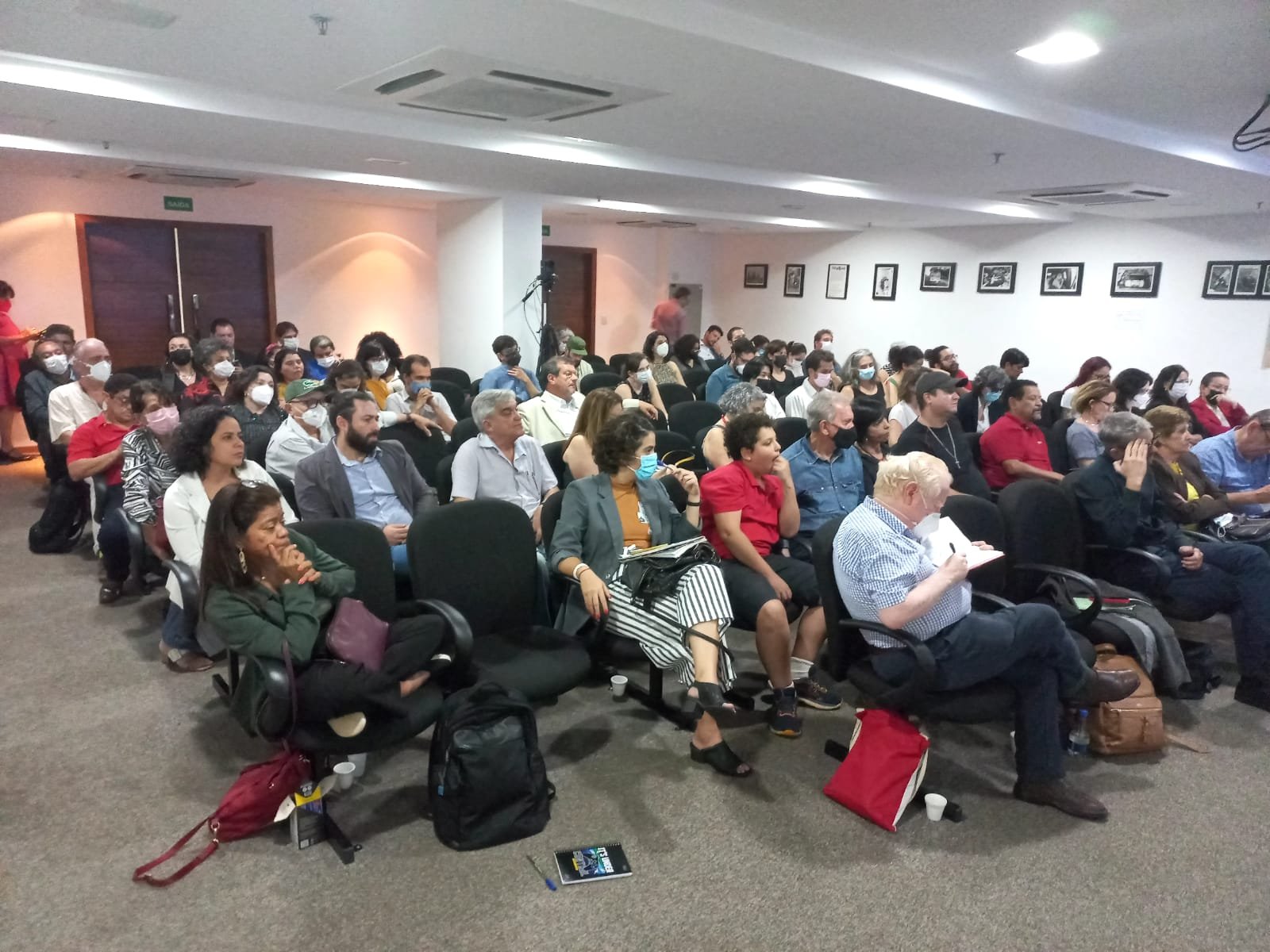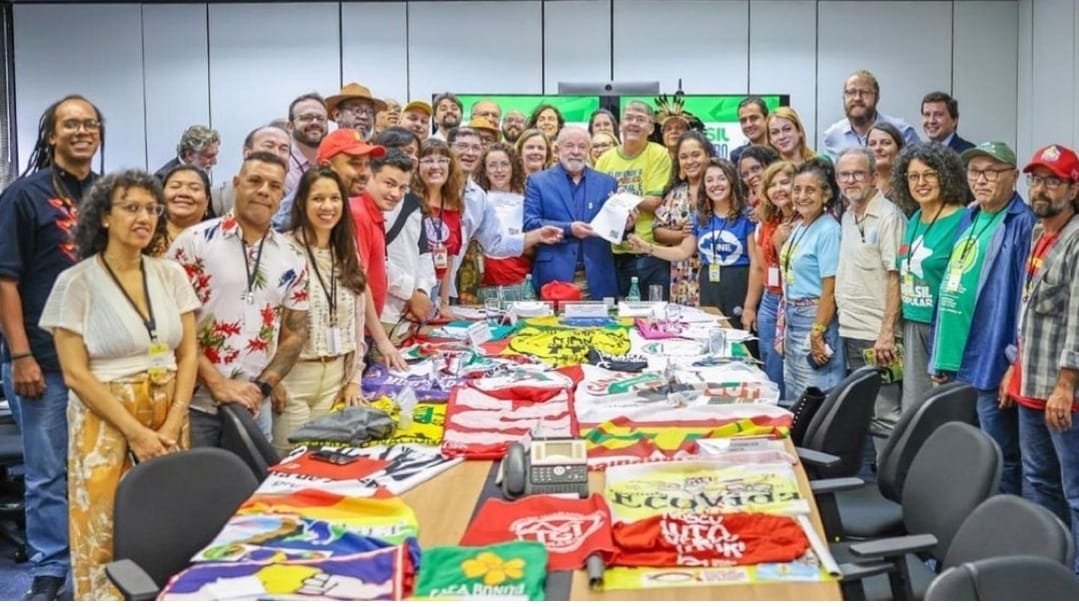Report from Brazil: Social movements and the transitional government strategize launch of national participatory democracy
/By Tarson Núñez, People Powered member and researcher from the Department of Economics and Statistics for the state of Rio Grande do Sul, Brazil
In Luis Ignácio Lula da Silva’s campaign for president, one of the most exciting proposals was the adoption of a nationwide participatory budgeting (PB) process. The proposal is a direct attack on the so-called “secret budget,” a slush fund set up by outgoing President Jair Bolsonaro that amounts to around one-fifth of the government’s discretionary spending. The fund is known as the secret budget because there is little or no oversight over where the money goes once it is handed to lawmakers.
Now that Lula has won the presidency, the prospect of not only reigniting participatory democracy in Brazil but expanding it to the national level has motivated and mobilized social movements, practitioners and academics across the country. On December 7-8, we gathered for a summit we called “The Reconstruction of Social Participation in Brazil.” Sponsored by a coalition of grassroots organizations, research institutions and social movements, the summit’s mission was to explore how we can capitalize on this moment to deepen and broaden citizen participation in government decision-making. We worked in coordination with the working groups charged with drafting the policies for the new Lula administration, which will assume office in January. The debates that took place focused on both reconstruction of the participation spaces that were dismantled by the Bolsonaro government and how we could go even further in innovating direct citizen participation.
Summit participants
The initiative to organize this debate came from the Brazilian Participatory Budgeting Network, the Institute for Democracy and Democratization of Communication, and the Democracy and Participation Network. The PB Network is a coalition of activists, researchers and PB practitioners, which today includes more than 60 participants from 10 states. The institute is part of a program focusing on academic social research and is coordinated by political scientist Leonardo Avritzer. Although it is funded by the Ministry of Science and Technology, it was created in 2008, during Lula’s second term as president, and managed to survive during the Bolsonaro years. The Democracy and Participation Network, coordinated by Professor Wagner Romão from Unicamp (the State University of Campinas), is made up of research groups working on citizen participation.
Held at the headquarters of the Union of Journalists in Brasília, more than 100 participants from across the country participated in the summit. In addition, the proceedings were broadcast via videoconference, watched by more than 1,300 people via TV Democracia, the institute’s YouTube channel, where the entire debate can be accessed.
Tarson is one of the People Powered expert mentors, offering his knowledge and experience to others around the world, who are either just starting out in participatory democracy or are veterans and want to brainstorm new techniques. Learn more and consider applying for a mentor!
Five debates
Five subgroups addressed different aspects of participatory dynamics at the national level, using as a starting point the structures and experiences in Brazil between 2003 and 2016. These included public policy councils, national conferences and participatory planning. However, the participants all agreed that it is necessary, and possible, to go further than previous experience. Among the high-profile participants in this discussion was the national president of the Workers' Party, Gleisi Hoffmann, and Gilberto Carvalho, who was responsible for citizen participation for its past administrations.
For example, we agreed we should employ new technologies for enabling participation, like apps and cellphones, to ensure transparency and create a direct connection between government and citizens. There also was a consensus that creating spaces for participation is not enough. It’s also critical to improve the way these spaces are used, including the language we adopt. In other words, the pedagogic dimensions are almost as important as the spaces themselves.
One subgroup focused on social movements, such as the Landless Peasants Movement, and Homeless Workers Movement. They shared both their positive and negative experiences during Brazil’s previous implementation of public engagement during Lula’s and Dilma’s governments.
A second group looked at the possibility of implementing a participatory budget on a national scale, based on a proposal prepared by the Brazilian PB Network. The ensuing debate revealed the complexity of the task in the context of the existing institutional frameworks. Any new process must be compatible with the requirements of the Pluriannual Plan (PPA) and Annual Budget Law. The PPA is a four-year plan that is drafted in the first year of a government, detailing the amount of investment per sector as well as how it will be spent. Every city and state, as well as the national government, must adopt a PPA, and all subsequent annual budgets must comply with it. You cannot propose a new investment if it is not part of the current PPA. That poses a significant challenge for the design of a national PB process because we also have to democratize the drafting of the PPA. However, Lula has experience in rising to that challenge; in 2003, he developed Brazil’s first PPA with public participation built in. [People Powered issued a report on national PB laws, including their advantages and potential pitfalls.]
How to nurture participatory democracy despite government opposition
The third working group focused on the country’s past participatory experiences, their elimination by the Temer and Bolsonaro governments, and different perspectives on how to revive them. Fortunately, despite the past opposition, several of the participatory bodies were resilient, finding ways to continue independently – for example, by holding “popular conferences” without government support or participation. This effort by civil society organizations ensured some continuity and could be a model for civil society organizations in other countries where the government is hostile to participatory democracy.
For example, when Bolsonaro was elected, one of his first acts was to get rid of the National Council on Food Security (CONSEA) and dismantle all related government support structures. However, social movements, civil society organizations and academic institutions that had supported CONSEA decided to hold its planned 2020 conference on their own. Although the national event ended up being postponed due to COVID, they managed to organize five regional meetings in 2020 and 2021, and the organizations continued to work together and act in a coordinated way at various national and international events focused on food security.
The fourth subgroup discussed various methodological issues related to citizen participation, popular education and their relationship to social transformation. The central idea of this debate is that participatory practices are not only instruments that can bring about a more efficient and responsive state; they also play a fundamental role in capacity building. The process of participating in government can serve as a school of citizenship. Thus, we must design the process to maximize that possibility. In the words of Gilberto Carvalho, “It is necessary to see government actions as educational actions, which need to inform and stimulate the critical consciousness of the population.”
Finally, the fifth working group addressed the new participatory technologies and formats and the possibilities and limits they pose. Technology can greatly enhance the implementation of participatory mechanisms, especially at the national level in a country with continental dimensions, such as Brazil. At the same time, the digital divide is still a big challenge there. Many people have limited or no access to the internet, requiring in-person strategies so no one is excluded. (Guidance on this is offered in the People Powered Guide to Digital Participation Platforms.)
What’s next?
The document outlining the outcome of the summit is delivered to Lula
The points of agreement that came out of the five discussions were summarized in a document for delivery to the transitional government. Among the challenges highlighted are the need to scale up processes that have only been local in the past, the complexity of harmonizing participatory processes with existing institutional frameworks, and building popular consensus in the polarized atmosphere created by Bolsonaro’s defeat. Nevertheless, all of the participants agreed that the wealth of experience, the political will manifested by the incoming government, and the mobilization of activists, academics, social movements and organizations around a common commitment to participatory democracy give us reason to be optimistic about the prospect for Brazil over the next few years.
On December 13, the report was presented to Lula in a meeting of the Social Participation Council, a group that is part of the transitional government. In the meeting, Lula reinforced his commitment to consolidate participatory democracy as one of the pillars of his government.






